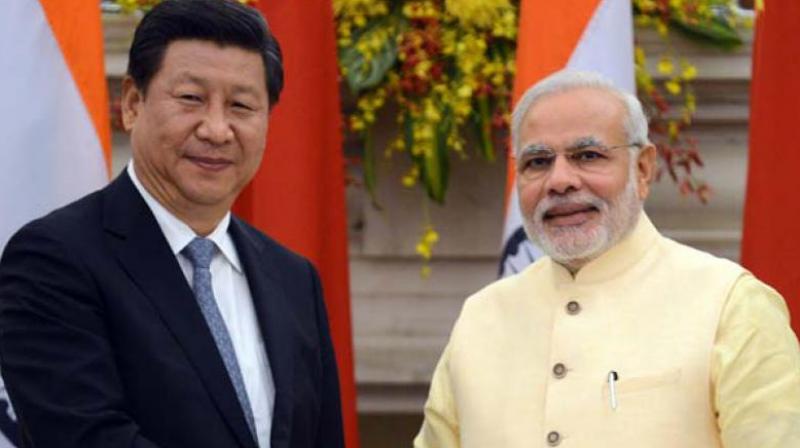Reflections: India's OBOR boycott - Was it misjudegment?

Principle is an admirable virtue, but the May 14-16 global conference in Beijing that India did not attend leaves one with the sinking feeling that in the name of principle, the Narendra Modi government may have cut its nose to spite its face. The refusal to have anything to do with Xi Jinping’s ambitious One-Belt-One-Road mega-infrastructure project for which nearly 70 countries and international organisations have already signed up and which might cost up to $8 trillion can only be put down to pique. Realism demands that we face up to the stark truth that India lags far behind China, whose economy is five times the size of India’s, and which boasts the world’s fastest growth rate and accumulated foreign exchange reserves of $3.5 trillion.
We need far more investment than we have received in the last three years of complacent bombast. We need to create many more jobs so that the increasing army of unemployed young men don’t drift into cow protection goondaism in a stagnant society. We need to give industrial production a fillip and encourage savings, improve connectivity and introduce the rudiments of a welfare state. These innovations alone won’t enable India to catch up with China, but it might be possible for India to profit from the opportunities that OBOR is expected to create. Of course, nothing might come of the initiative. But the notion of linking the land-based “Silk Road Economic Belt” and the oceanic “Maritime Silk Road” to optimise linkages between Asia, Europe, Oceania and East Africa, bridge the infrastructure gap, and accelerate economic growth across the Asia-Pacific area and Central and Eastern Europe does speak of President Xi’s daring vision.
His bold strategy also underlines Beijing’s push for a larger role in global affairs, as well as a determination to coordinate manufacturing capacity with other countries in areas such as steel-making. But the 64 countries with a combined GDP of more than $21 trillion that attended the Beijing summit (20 sending heads of government) would not have endorsed the scheme if they, too, didn’t expect to benefit from it. They calculate OBOR will result in improved communications; increased travel, tourism, people-to-people exchanges and government-to-government contacts; enhanced investment; greater transfer of technology; and much higher trade.
One possible reason why India snubbed the organisers could have been the complaint that China is trying to encircle this country with the ports, naval bases and surveillance posts commonly referred to as the “string of pearls”. But, then, if China is indulging in such hostile activity, India should logically end its $71 billion bilateral trade, with a huge $47 billion deficit in China’s favour. To pick and choose what to keep and what to discard is not principle. It’s expediency or, worse, opportunism. It’s also argued that India cannot take part in a project that includes the China-Pakistan Economic Corridor which the Chinese have built at a cost of $57 billion through a part of the state of Jammu and Kashmir that Pakistan invaded and annexed. Violation of sovereignty is a seemingly plausible argument, but honest objection demands not only breaking off all ties with Pakistan, but also operating a kind of Hallstein Doctrine in respect of third countries that deal with the offending country. It was under the Hallstein Doctrine that the erstwhile West Germany rejected the notion of diplomatic relations with any state that recognised the former East Germany.
That principle could also be applied to any nation that befriends China, which built the Tibet-Xinjiang road in 1951 through the Aksai Chin plateau, which India had always considered to be a part of Ladakh but which China now administers as a part of Xinjiang. But it would be counter-productive to sever ties with both China and Pakistan. It’s not widely remembered now that the kings of England claimed for 460 years to be also kings of France. That didn’t stop the two countries from trading, fighting and entering into treaties and alliances during those centuries. They didn’t allow legal positions to interfere with what was in the national interest.
India could similarly have reserved its rights in respect of the ocean posts, Pakistani-occupied Kashmir and Aksai Chin while participating in the OBOR scheme like Russia’s Vladimir Putin. Instead, New Delhi has again allowed paranoia to take precedence over pragmatism as in those years when every hitch was blamed on “the foreign hand”, and China, Pakistan and Richard Nixon’s America were accused of trying to encircle India. By boycotting the OBOR summit, India has also exposed its political vulnerability. Donald Trump’s speech in Riyadh on Sunday highlighted his courtship of the Islamic world as a hedge against terrorism; North Korea’s latest missile similarly highlighted his reliance on China to curb the unpredictable Kim Jong-un.
In the game of thrones that has replaced the Cold War, Russia, which also suffers from Islamic extremism, needs both China and Pakistan. Mr Modi may fly frenziedly from one foreign capital to another — 57 trips to 45 countries since becoming Prime Minister — with visits to Israel, Russia, Germany, Spain and Kazakhstan lined up for the near future, but New Delhi just does not have Beijing’s international leverage. It would have been different if American corporations were scrambling for a place in the Indian sun as they are doing for a slice of the OBOR initiative. For now, however, even an innocuously beneficial slogan like “Swachh Bharat Abhiyan” means little on the ground. By ignoring even the prospect of gaining from a multinational project, albeit one initiated by China, India gives the sad impression of a child who has failed in both sports and studies, and is sulking in a corner.
The writer is a senior journalist, columnist and author

